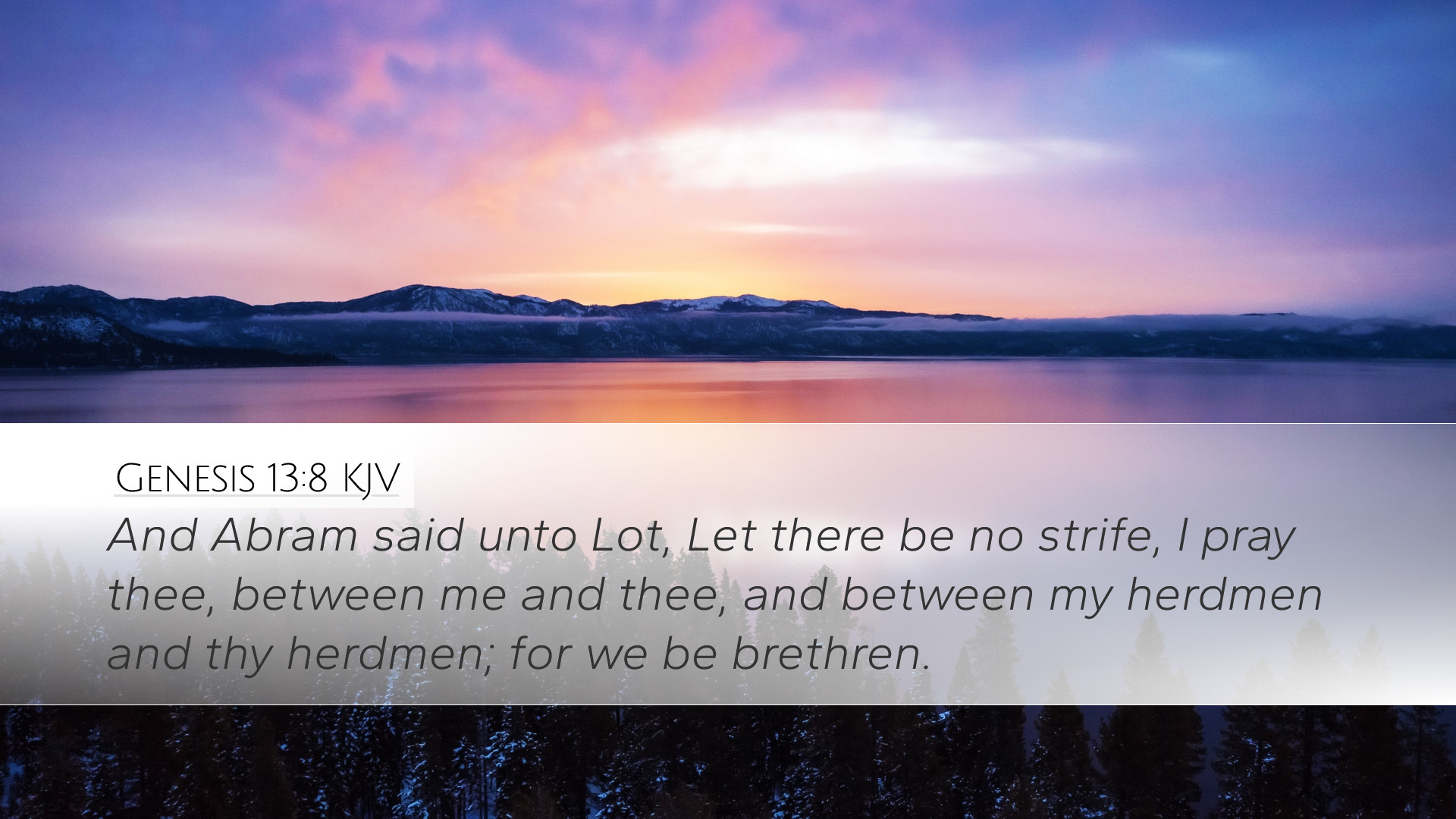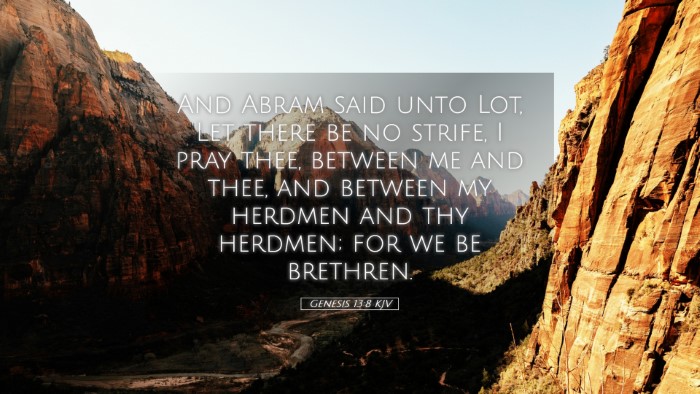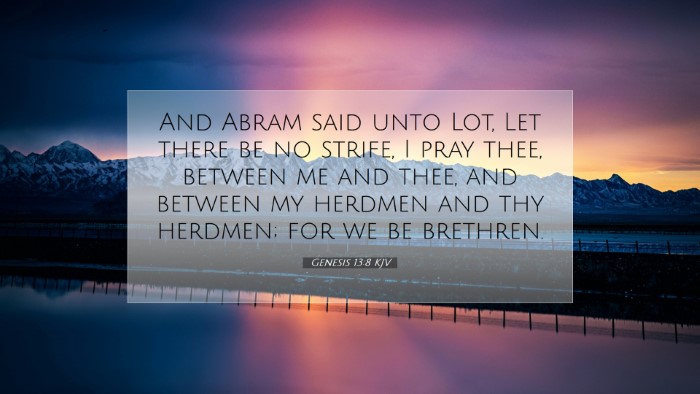Commentary on Genesis 13:8
Verse: "So Abram said to Lot, 'Let there be no strife between you and me, and between your herdsmen and my herdsmen, for we are brothers.'" (Genesis 13:8, NIV)
Introduction
This passage serves as a pivotal moment in the narrative involving Abram (Abraham) and Lot. It reflects the importance of harmony within relationships among brethren, particularly in contexts filled with potential conflict. The discussion involves insights from several esteemed public domain biblical commentators, including Matthew Henry, Albert Barnes, and Adam Clarke.
Contextual Background
The events of Genesis 13 take place after Abram and Lot have returned from Egypt. They had accumulated great wealth, particularly livestock, leading to a scenario where the land could not support both their herds simultaneously. This situation necessitated a pragmatic approach to avoid discord.
Application of Biblical Principles
The conflict between Abram’s and Lot’s herdsmen illustrates the necessity for believers to navigate disputes with grace and wisdom. As conflicts arise within communities and relationships, the tactic employed by Abram provides a blueprint for conflict resolution in any Christian context.
Commentary Insights
Matthew Henry's Commentary
Matthew Henry accentuates the gravity of Abram's position. He notes that Abram, as the elder and more established patriarch, could have insisted on his rights. Instead, he demonstrates selflessness by proposing a solution to maintain peace. Henry highlights, "In quarrels, the best way is for those in both parties to defer to one another." This verse encapsulates the spirit of reconciliation that should pervade Christian relationships.
Albert Barnes' Notes
Albert Barnes emphasizes the familial bond between Abram and Lot, which necessitated a peaceful resolution. He recognizes the wisdom in Abram’s request and remarks on the implications of contentious relationships, indicating that strife can corrupt the spiritual connection shared among believers. Barnes states, "True religion teaches us to value peace and unity above all earthly possessions." He draws attention to the importance of prioritizing relationships over material gain, a theme that resonates through the Scriptures.
Adam Clarke's Commentary
Adam Clarke provides additional depth to the familial implications of the text. He notes that both Abram and Lot were of the same lineage, underscoring the importance of unity. Clarke explains that Abram’s decision to separate was intended not just for personal peace but for the greater good of their families. He observes, "This was a wise and prudent decision of Abram, who respected both his own dignity and the bonds of kinship." His insight reflects the necessity of wise leadership in dispelling conflict, which holds practical applications in church leadership today.
Theological Implications
From a theological standpoint, Genesis 13:8 is rich with implications about the heart of God for unity. The dynamic between Abram and Lot serves as a foreshadowing of larger themes of reconciliation that are fully realized in the New Testament through Christ. Unity in the body of Christ is paramount, and this passage illustrates the lengths to which one should go to maintain it.
Key Takeaways
- The need for humility and selflessness in relationships.
- The recognition that earthly possessions do not take precedence over familial ties and friendships.
- The importance of proactive conflict resolution to sustain unity.
- Christian leadership is characterized by the willingness to prioritize others’ welfare.
Conclusion
Genesis 13:8 serves as a poignant reminder of the Christian doctrine of peace. Abram’s approach to conflict resolution is a powerful example for pastors, theologians, and students alike. The shared insights from Matthew Henry, Albert Barnes, and Adam Clarke aid in appreciating the depth of this narrative and its applications today. Ultimately, the call to unity among believers resonates deeply, urging Christians to reflect the nature of Christ through their relationships.


